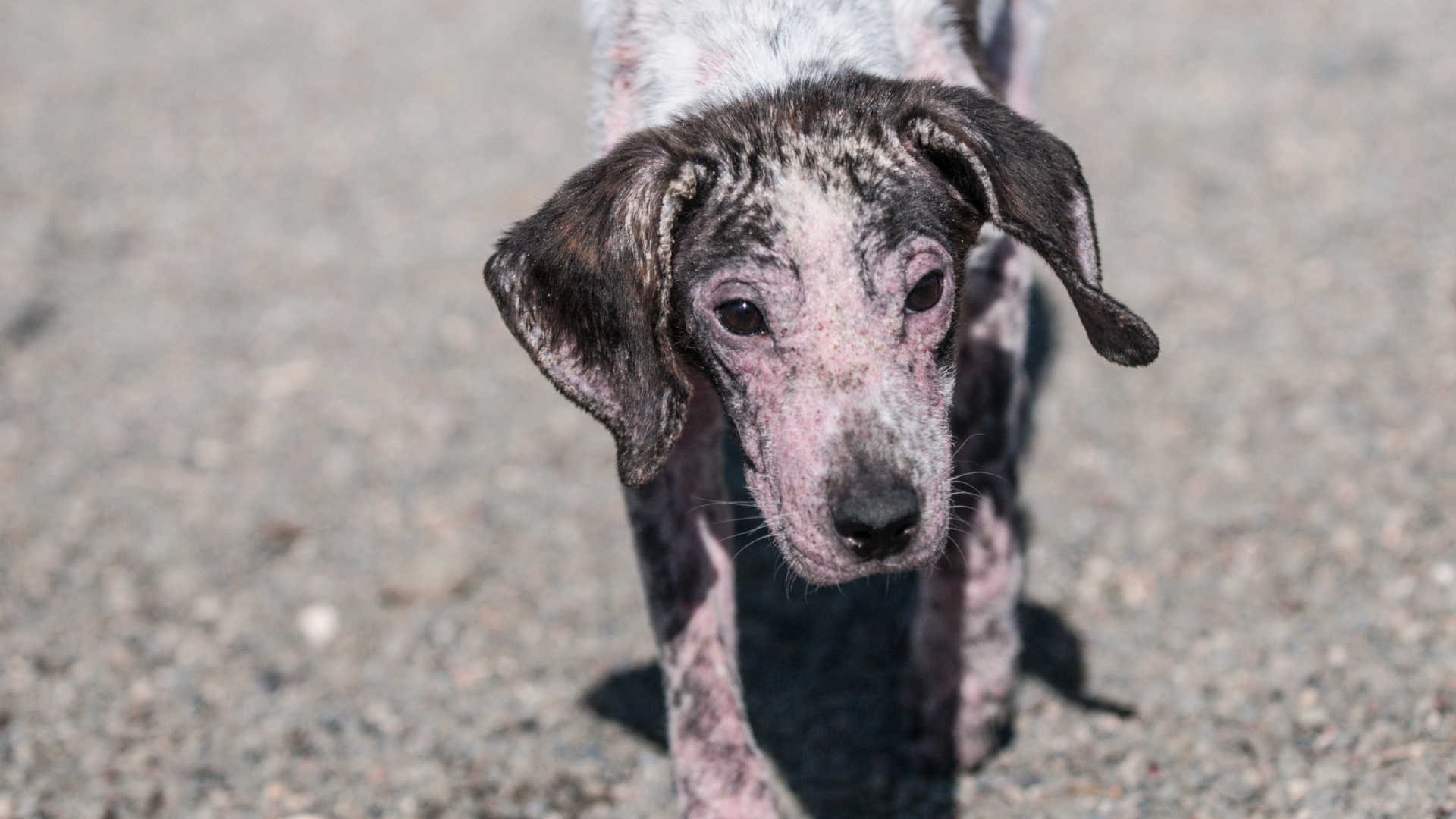I played these 7 fun games to engage my reactive dog and they improved her impulse control
These super fun games can help your reactive dog manage their impulse control.
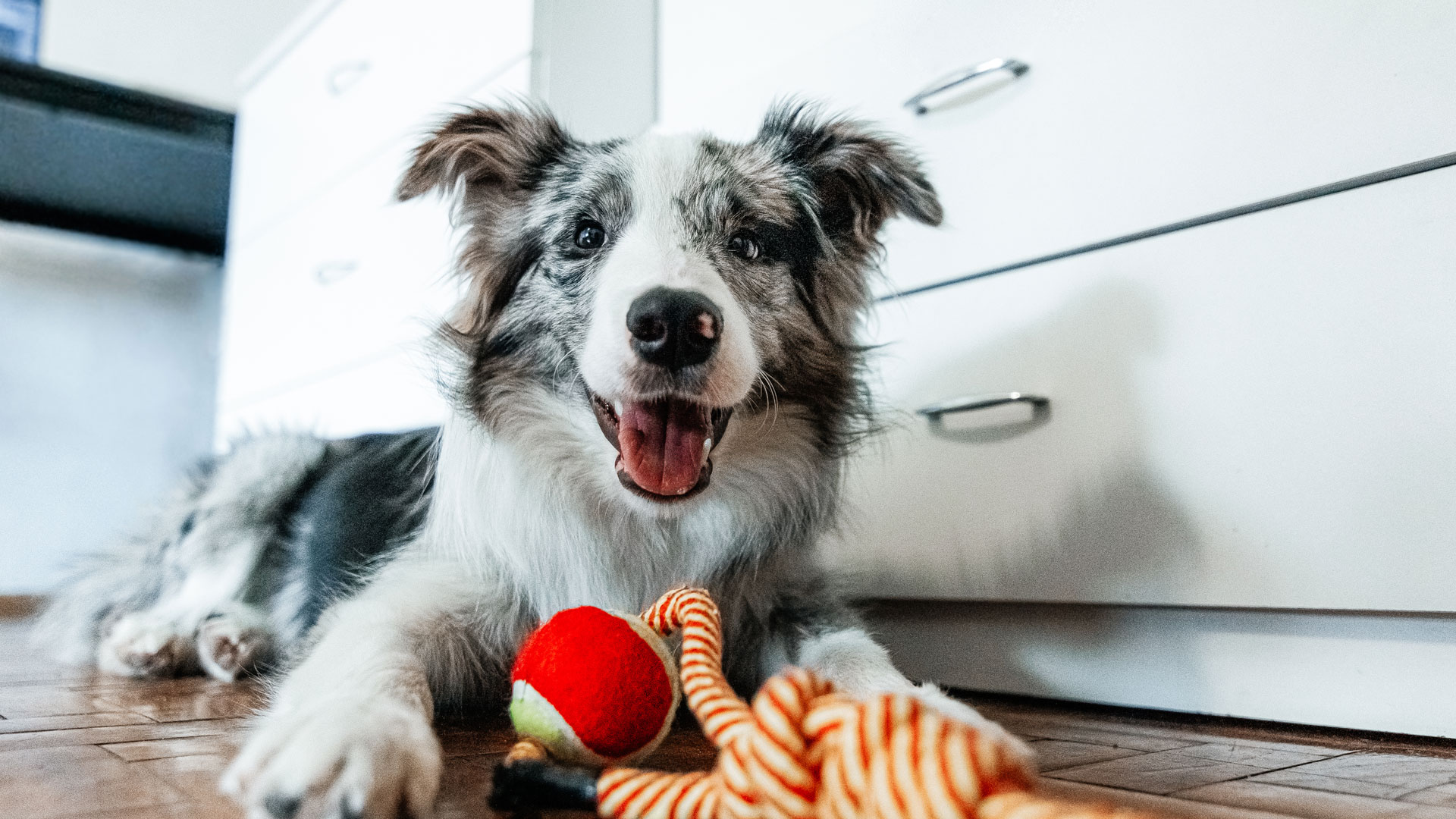
My reactive dog Poppy was a large Weimaraner cross. She pulled me over several times, once cracking several ribs after an epic face plant when she lunged at another dog.
After I trained as a dog behaviorist, I used these games daily. They will help you teach your dog to focus on you and improve your relationship.
1. Look at Me Game

This game made a significant difference in Poppy's behavior. It's a fabulous "get me out of trouble" game when your reactive dog gets triggered.
- Have the best dog treats close by
- Sit with a few treats in your closed hand and let your dog sniff them (at first, your dog may paw your hand and whine but wait for them to be calm)
- If your dog sits and stops showing impulsive behavior, say "Yes!" and treat him
- Wait until your dog makes eye contact
- Say "Yes!" and give him the treat
- When your dog consistently makes eye contact, add the verbal cue, "Look
Start practicing in different environments so “Look” becomes an ingrained behavior even when there are distractions.
2. Sit and Look Game
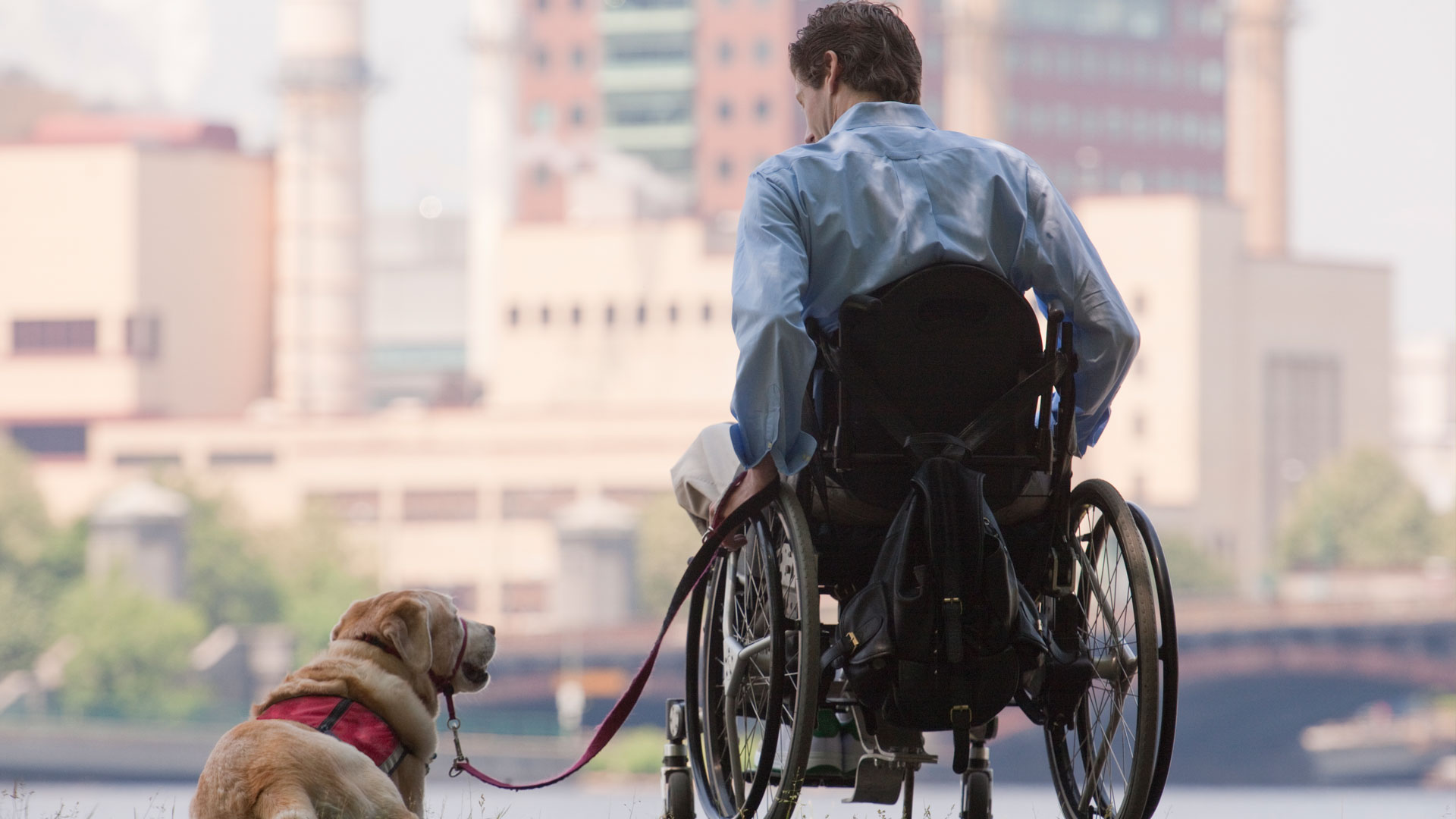
This game was Poppy's favorite and a great one to try after you've established game 1 with your dog. You'll follow the steps and add a 'sit' cue.
- Practice in a quiet place without distractions. Walk with your dog and then use a verbal cue like "Poppy, look" and halt
- When your dog sits and makes eye contact, say "Yes!" or use a clicker and reward him
- My secret weapon was squirty cheese. Poppy absolutely adored it, and it was a great "emergency" treat if a dog suddenly appeared
With time and repetition, your dog will love this game. You can walk anywhere, and your dog will sit when you stop. Sitting is a calming protocol, so it's a fabulous way to help your dog manage their emotions.
3. Look at That Game
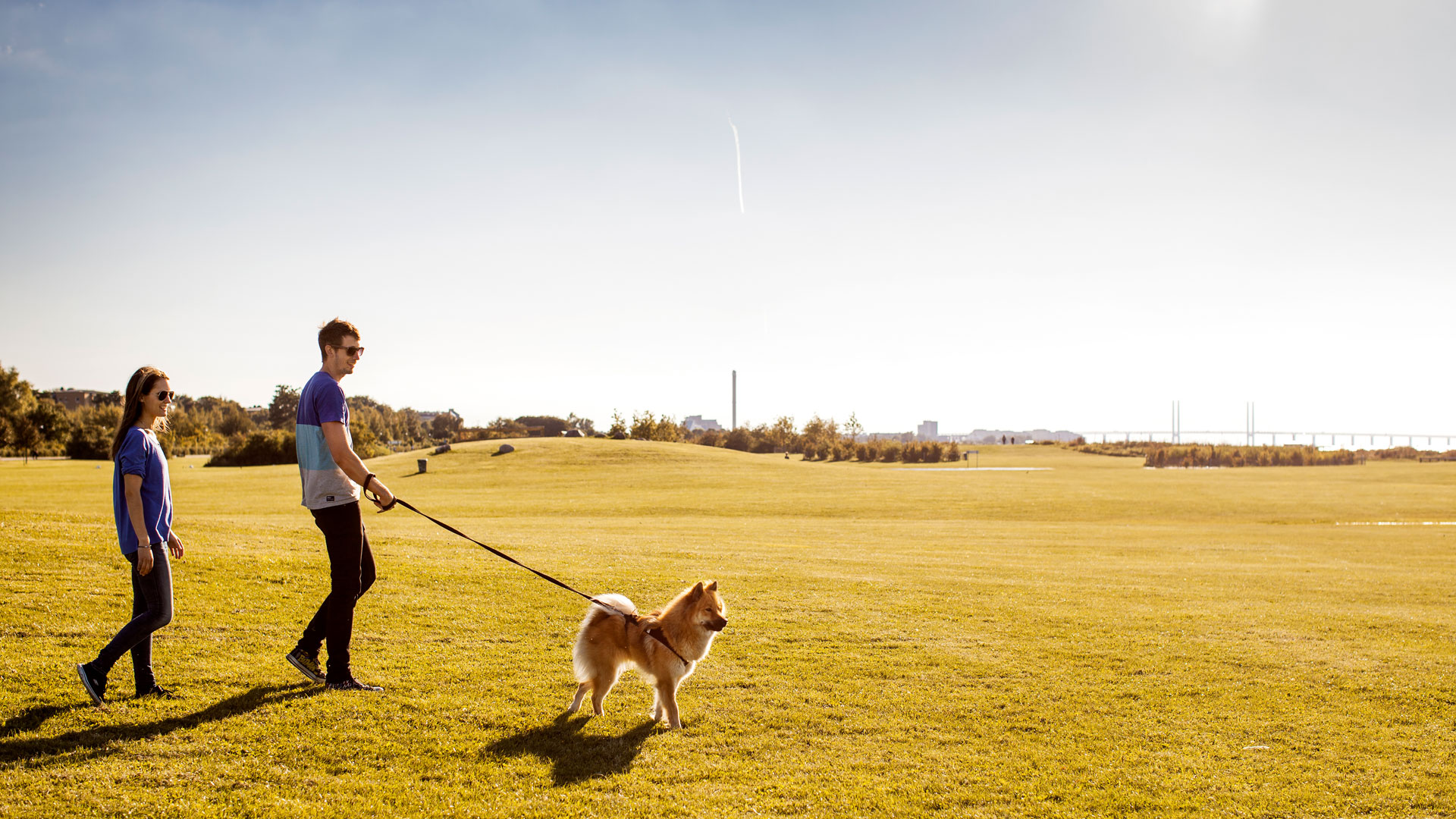
Leslie McDevitt developed this game, and she wrote a fantastic book called "Control Unleashed."
Get the best advice, tips and top tech for your beloved Pets
The game teaches your dog to disengage with the "trigger", whatever sets off the reactive behavior. And triggers aren't just other dogs either as this game works well for all triggers.
- Use high-value bite-sized treats, such as fishy sprats
- Work in a controlled environment so you can control the distance
- When you see a dog in the distance, wait for your dog to look, say "Yes!" and give him a treat. If your dog lunges or barks, you are too close, so move further away
- When your dog looks at triggers in the distance without reacting, add a verbal cue, such as "Look at that!" and reward if the dog is calm
- The concept is that your dog learns that he gets a reward when he looks and doesn't react
- Even a glance at the trigger without a reaction deserves a treat
- Once your dog can do this at a distance, gradually start inching closer to the trigger
This game helped Poppy's confidence, and I was able to decrease the trigger distance surprisingly quickly. That made our lives much easier and walks more pleasant. Plus, I stopped getting pulled over!
4. Find the Treats Game
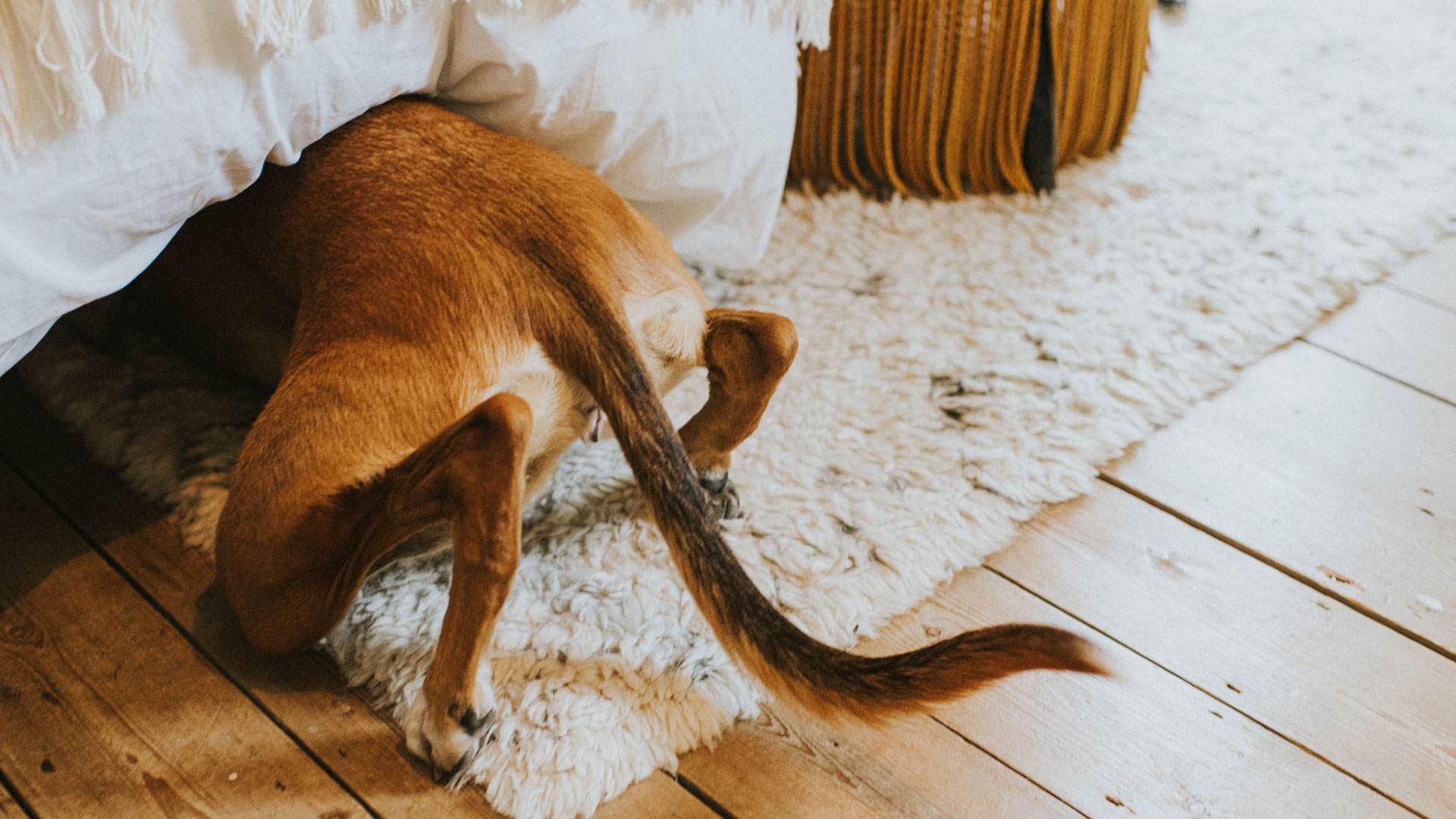
According to PetMD, Dr. Michael T. Nappier, DVM, DABVP, of the Virginia Maryland College of Veterinary Medicine, said, "They have up to 300 million olfactory receptors in their noses, versus only about 6 million for us. And the part of their brain dedicated to interpreting these is about 40 times larger than ours."
Scent games are popular with dogs as a fun activity. It helps your dog focus and engage with something without a reactive response, and it's mentally quite tiring (see what happened when one owner tried making a 45-minute "sniffari" for her border collie.
- Gather small tasty treats and place a few in a room in your house, with your dog present
- Your dog may start sniffing the air because he can smell something yummy
- In an excited voice, say something like, "Find it, Poppy
- When he finds the treat, praise him
- Do this exercise a few times until your dog responds to "Find it
- The next step is to hide the treats in other places without your dog present
Gradually make the game more challenging by playing the game in different secure environments. If your dog enjoyed that, also check out this Kong hack for tiring out your dog.
5. Find the Correct Toy Game
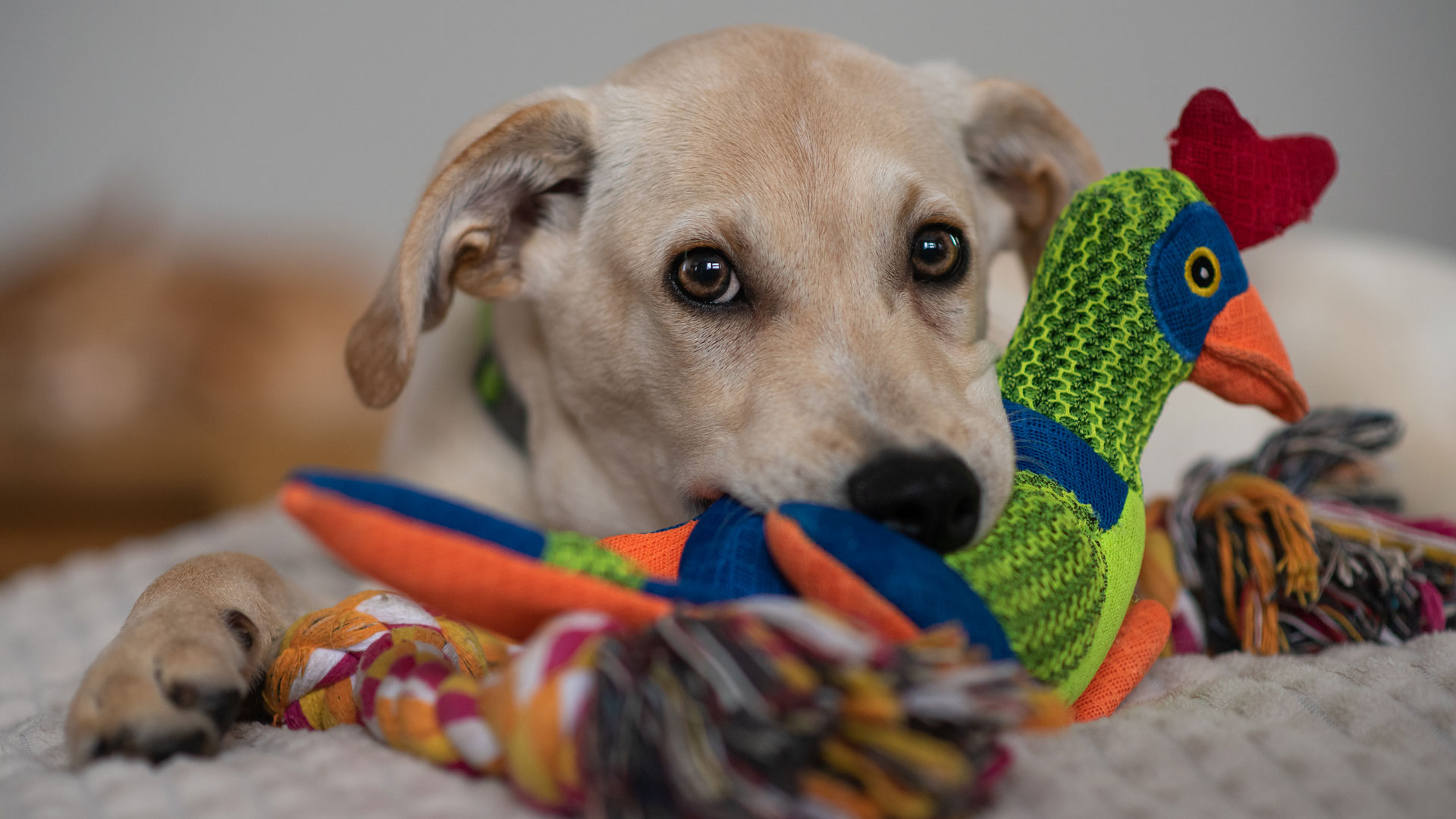
This game follows on from game #4.
- Start with two toys and use one with a cue name, such as "Froggy"
- Add a verbal cue, like "Find Froggy"
- When your dog consistently finds the first toy, bring out the other one, put it nearby, and give the verbal cue
- Reward when your dog chooses "Froggy"
- Practice with the second toy once your dog consistently selects the first named toy
- Name the toy and practice the new verbal cue
- Put the two toys out in the same room
- Try a verbal cue, such as "Find Froggy
- Praise and reward when your dog gets the correct toy
- If he fails, ignore and try again
With repetition, you can practice between multiple toys. This game can be challenging for some dogs and easy for dogs like Border Collies. It's a fabulous game for tiring your reactive dog.
6. Tug of War Game
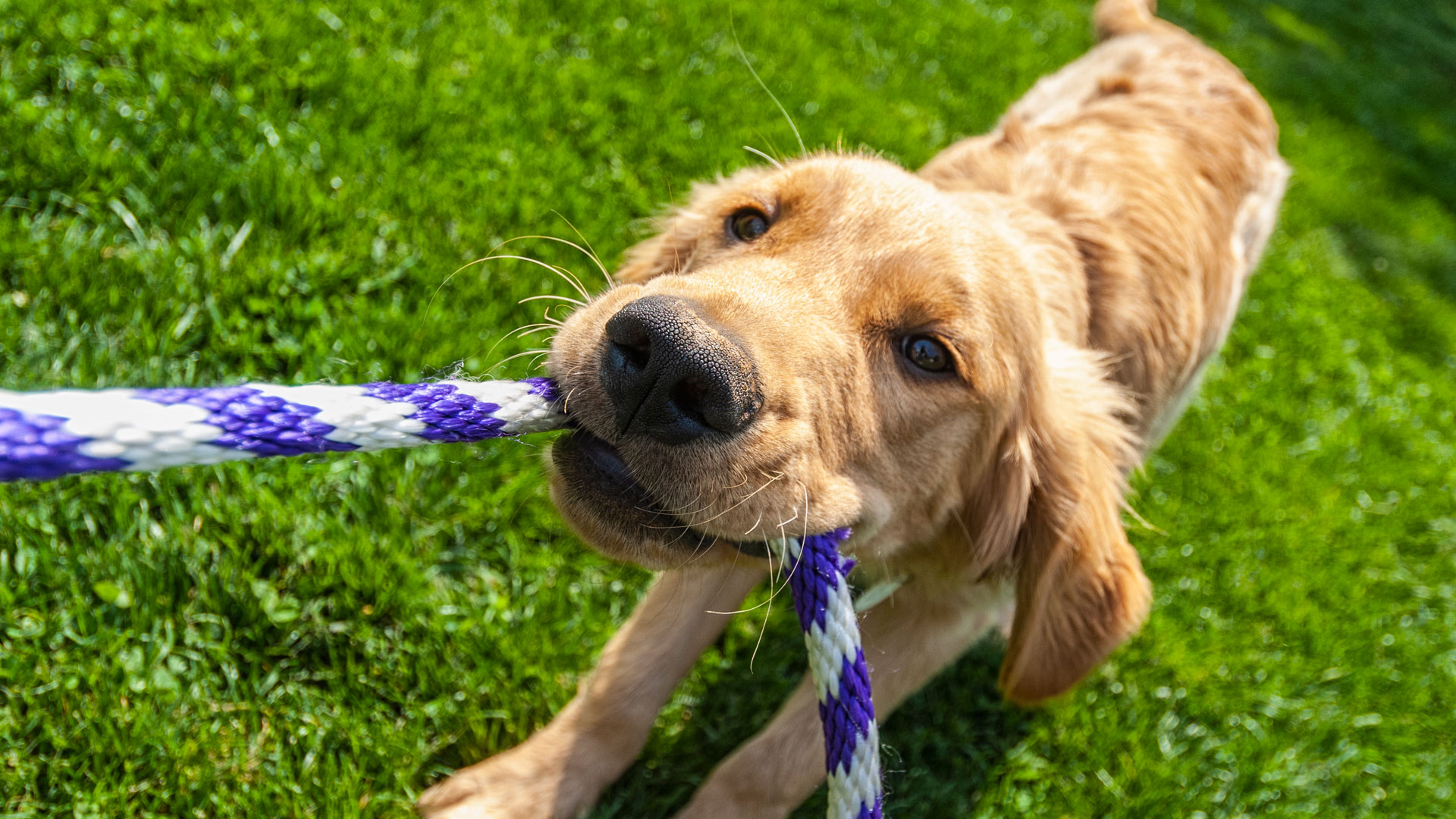
Most dogs enjoy playing tug, and it's a great game to burn mental energy.
- Purchase a good quality tug toy, and choose somewhere you have plenty of space
- Encourage your dog to grab the tug toy. Use a verbal cue, such as "let's play."
- Hold the tug and let your dog pull it
- Occasionally, let your dog win. He will love that, and it prevents him from fixating on the tug
- After the game, put the tug toy away
If your dog resource guards food or toys, the tug-of-war game might not be the best option, so choose one of the other games.
7. Hide and Seek Game
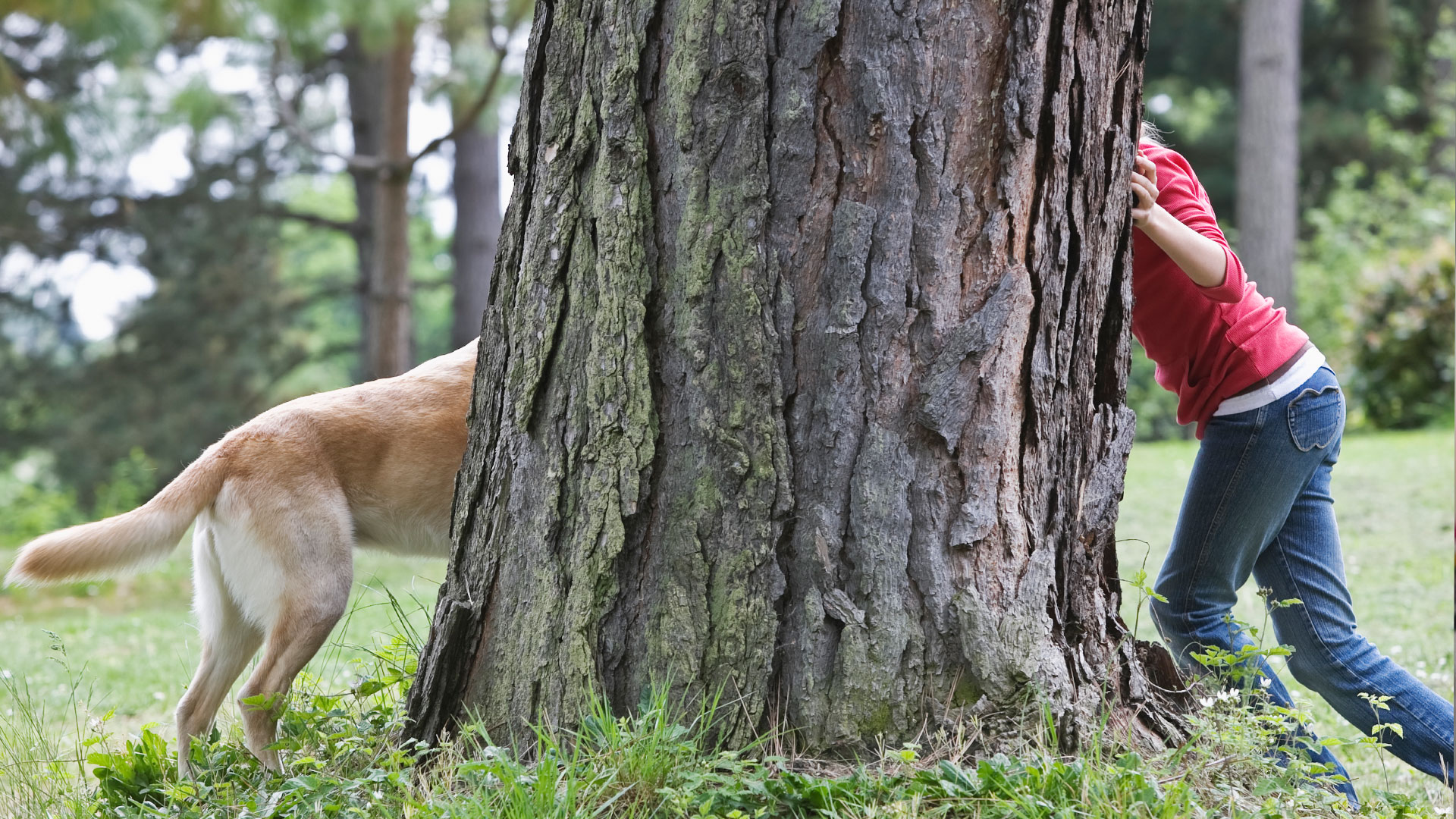
I love the hide-and-seek game because it teaches your dog to watch you out on walks.
- Have treats in your hand and allow your dog to sniff them.
- You will need an assistant to hold your dog while you hide (unless they have a strong "stay" command)
- Find somewhere to hide
- Once you've hidden, call your dog and reward him when he finds you.
You can practice this exercise while walking in a safe place, like a dog-proof field.
Other tips for playing games
Always supervise your dog during games and keep sessions short, around five minutes at a time. With practice, you will begin noticing significant improvements in your furry friend's reactive behavior, and having fun together will help deepen your bond.
Read next: what to pack in your reactivity training kit

Jan is a dog behaviorist and writer living in the Cotswolds, UK. She qualified as a dog behaviorist in 2012 after training with Sarah Whitehead, a Certified Clinical Animal Behaviorist with a MSc in Animal Behavior. Jan has shared her life with dogs for over fifty years and is fascinated by behavior. She enjoys helping people better understand their dogs to develop a deep bond and enjoy time together. Jan particularly enjoys working with impulsive and reactive dogs as her legacy from helping Poppy, her rescue Weimaraner cross overcome fear reactivity.
